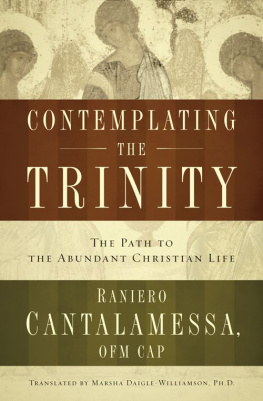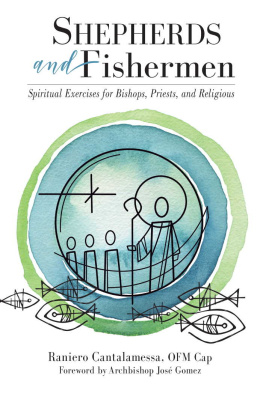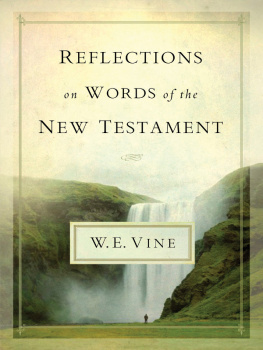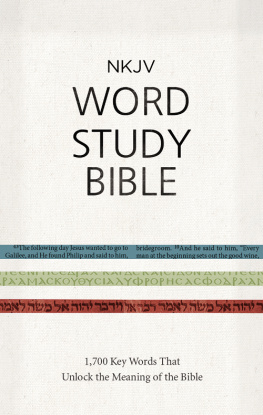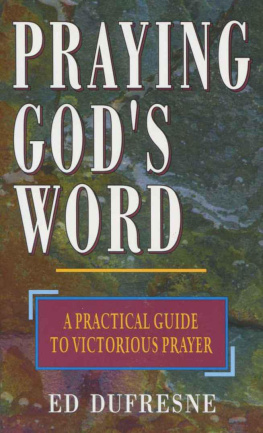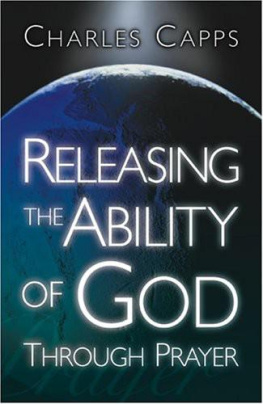JESUS BEGAN TO PREACH
Raniero Cantalamessa, O.F.M. Cap.
JESUS BEGAN TO PREACH
The Mystery of Gods Word
Translated by Vera Castelli Theisen

LITURGICAL PRESS
Collegeville, Minnesota
www.litpress.org
Cover design by Ann Blattner. The Savior in Power (15th cent.), Tretjakov Gallery, Moscow. Courtesy of the author.
Translated from the Italian La tua parola mi fa vivere, ncora Editrice, 2008. An earlier version of this book was published in English under the title The Mystery of Gods Word (Liturgical Press, 1994).
Excerpts from documents of the Second Vatican Council are from Vatican Council II: Volume 1, The Conciliar and Post Conciliar Documents, by Austin Flannery, OP 1996 (Costello Publishing Company, Inc.). Used with permission.
Scripture texts in this work are taken from the New American Bible with Revised New Testament and Revised Psalms 1991, 1986, 1970 Confraternity of Christian Doctrine, Washington, DC, and are used by permission of the copyright owner. All Rights Reserved. No part of the New American Bible may be reproduced in any form without permission in writing from the copyright owner.
2010 by Order of Saint Benedict, Collegeville, Minnesota. All rights reserved. No part of this book may be reproduced in any form, by print, microfilm, microfiche, mechanical recording, photocopying, translation, or by any other means, known or yet unknown, for any purpose except brief quotations in reviews, without the previous written permission of Liturgical Press, Saint Johns Abbey, PO Box 7500, Collegeville, Minnesota 56321-7500. Printed in the United States of America.

Library of Congress Cataloging-in-Publication Data
Cantalamessa, Raniero.
[Tua parola mi fa vivere. English]
Jesus began to preach: the mystery of Gods word / Raniero Cantalamessa;
translated by Vera Castelli Theisen.
p. cm.
Translated from the Italian La tua parola mi fa vivere, Ancora Editrice,
2008. An earlier version of this book was published in English under the
title The Mystery of Gods Word (Liturgical Press, 1994).T.p. verso.
Includes bibliographical references.
ISBN 978-0-8146-3304-5 ISBN 978-0-8146-3924-5 (e-book)
1. Jesus ChristPreaching. 2. Bible. N.T.Criticism, interpretation,
etc. 3. Catholic ChurchLiturgyTheology. I. Cantalamessa, Raniero.
Mistero della parola di Dio. English. II. Title.
BT590.P7C3613 2010
232.954dc22 2010000368
Preface
Your word is a lamp for my feet, / a light for my path, says Psalm 119. It then proceeds for 176 verses to celebrate with great richness of synonyms the beauty of Gods word. Commenting on this very psalm, Saint Ambrose affirms that the word of God is the vital substance of our soul: it nourishes, it feeds and directs it. There is nothing that can make the human soul thrive except the very word of God. Moses brings to light the same close relationship between the word of God and life when he says to the people, This word is our life (Deut 32:47), and Jesus when he answers the tempter, One does not live by bread alone, / but by every word that comes from the mouth of God (Matt 4:4).
This book attempts to capture this grand idea of a word that becomes Life. The constant focus is to show how the word of God illuminates and engages our existence, not only human existence in general with its usual problems, but also life and the challenges that were called upon today to face in the Church and in society.
The book was originally published in the year dedicated, by the Catholic Church, to the word of God and wished to be a modest contribution to the bishops synod that took place on the same topic. It picks up, in part, the reflections published a few years ago with the title The Mystery of Gods Word, enlarging their scope with the meditations held in the Pontifical Household, in the presence of Benedict XVI, during the Lenten season of 2008.
Chapter I
In the Beginning Was the Word
Word of God and Words of Men
1. The Word or the Silence?
There have been many attempts to change the solemn affirmation that begins the gospel of John: In the beginning was the Word. In antiquity, the Gnostics suggested a variant: In the beginning was Silence; and Goethe makes Faust, his character, say, In the beginning was action. Its interesting to see how the writer arrives at this conclusion. I cannot, says Faust, give such a high value to the Word; maybe I have to understand the meaning; but can the meaning be that which directs and creates everything? Then shall one have to say: In the beginning was power? No, a sudden clear illumination suggests the answer: In the beginning was action.
But are these attempts at corrections really necessary and justified? The Word, or Logos of John, contains all the meanings that Goethe attributes to the other words. One sees it in the rest of the Prologue; the Word is light, it is life and creative force. It is an operative word, as in the LORD commanded and they were created (Ps 148:5). In speaking, God creates. The difference between a speculative or theoretic sentence (for example: man is a rational animal) and an operative or practical one (for example: fiat lux, let there be light) is that the first considers the thing as already existing, while the second makes it exist, brings it into being.
It is true, then, that in the beginning there was Silence, if by silence is meant the absence of every voice and words of creatures. It is false if by silence is meant the absence of the word of God. It is of this silence of things, not of a primordial silence that the text of Wisdom speaks when applied to the liturgy of the birth of Christ: For when peaceful stillness compassed everything / and the night in its swift course was half spent, / Your all-powerful word from heavens royal throne / bounded (Wis 18:14-15).
Christian thought has fought to give the expression in the beginning the true meaning intended by John. First of all, it had to free itself from the notion that the Word was uttered by the Father only at the moment of the worlds creation when he pronounced the famous Fiat lux, let there be light. A provisional solution in this direction consisted in distinguishing the Word as uttered (Logos proforikos) that begins to exist at the moment of creation, from the Word as far as it resides implicit in God (Logos endiathetos) existing from all eternity. The final solution, however, only came with the Council of Nicea, when the early fathers rejected the idea that there was a time in which the Word was not. Even as uttered Word, the Son of God is eternal, because from the beginning of time the Father pronounces his Word. In fact he himself, in his very being as Father, would not exist ab eterno if ab eterno would not have a Son who is Word.
The beginning in which John places the Word is therefore an absolute beginning, outside time. If there is a reference to the text of GenesisIn the beginning, when God created the heavens and the earth (Gen 1:1)it is to be understood in the sense that in the moment when all things came into existence, the Word was, already existed.
2. A God Who Speaks
The expression, In the beginning was the Word, contains in nuce the whole future doctrine of the Trinity. It means that the biblical God is unique, but not solitary; that he is relationship, namely, communication, because there is no word that does not presuppose (in the case of God that does not bring into existence) an interlocutor, a you. But in this first meditation it is not the word in the Trinity that I wish to address but, rather, the word of God in history, Gods speaking to us.
Next page

